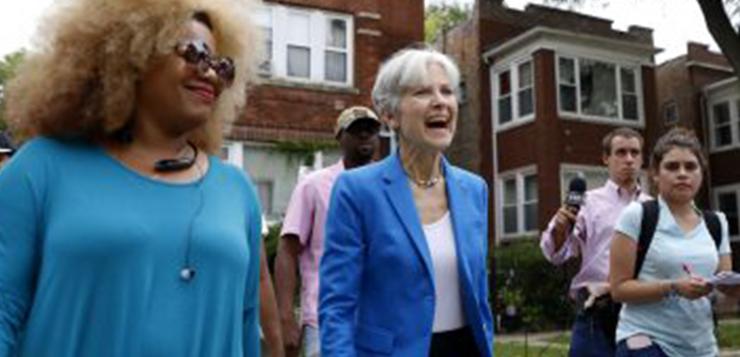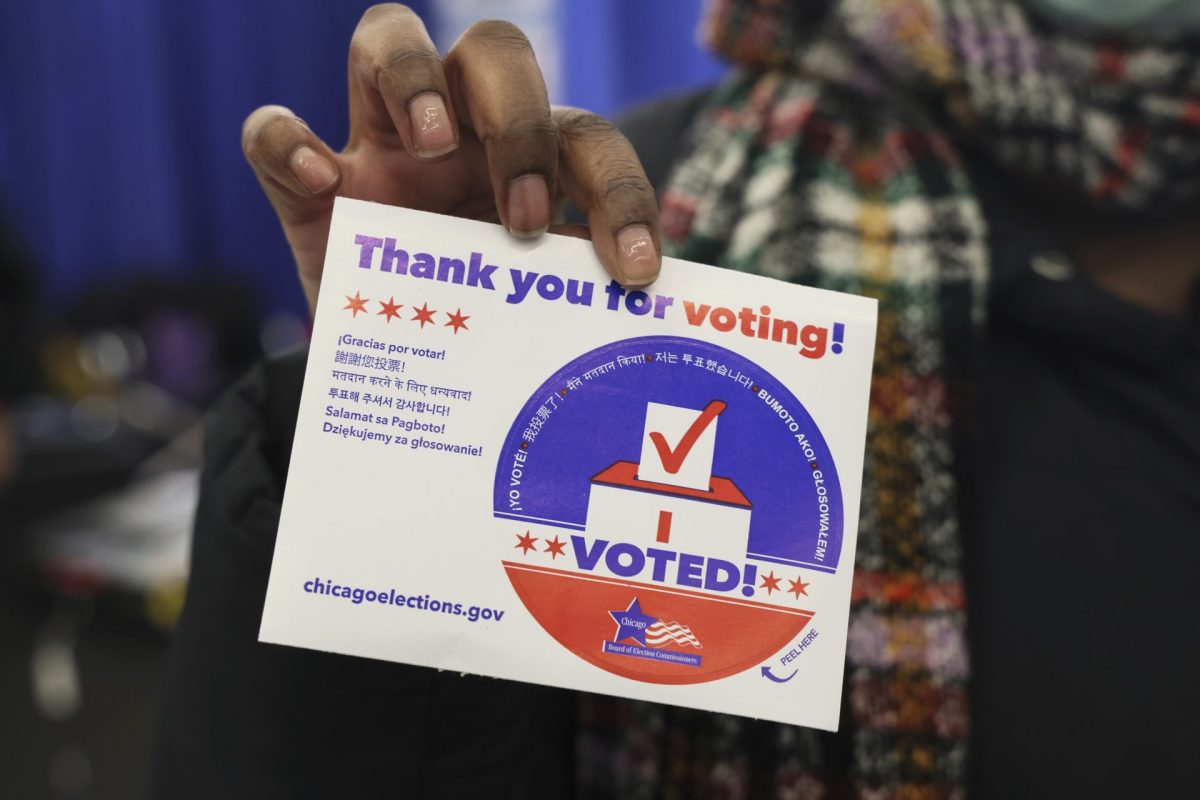As election season ramps up, a handful of students on campus still find themselves unhappy with the candidates on the major party tickets.
Like the 63 percent of registered voters in a September Pew Research poll who said they were “not too or not at all satisfied” with Democrat Hillary Clinton and Republican Donald Trump, they can’t bring themselves to vote for either candidate.
The solution? Rally around Libertarian Gary Johnson or the Green Party’s Jill Stein, who are both running as third party candidates.
Third party support manifests itself in a variety of ways on campus. For instance — though DePaul political organizations are not technically allowed to endorse specific political candidates as per the university code of student responsibility — the DePaul chapter of the International Socialist Organization has unofficially thrown their support behind Stein.
You might spot members of the group parked in front of the Student Center, dishing out information about socialism, social movements and Stein’s candidacy. Senior Felipe Bascunan and junior Sam Peiffer are both Stein supporters and have tried to spread awareness about her campaign in this manner.
They praise Stein’s willingness to show solidarity with the struggles of working class people, citing her presence at a protest of Dakota Access Pipeline in North Dakota earlier this month.
“This is a candidate who actually recognizes that struggle and that people’s organizations are the primary force of social change,” Peiffer said. “And she’s participating in that. … This is a candidate who actually recognizes that working people, and people who are exploited and oppressed, can take matters into their own hands and fight and win.”
On a larger scale, they both said their support is less about Stein as an individual candidate and more related to their general dissatisfaction with the Democratic Party, which Bascunan said “play(s) the role of the party of the people” in order to maintain status quo.
“For us, in terms of supporting an independent, obviously we’re in support of Jill Stein for various reasons,” Peiffer said. “But more than anything we are because we think it’s important to break from the Democratic Party. The Democratic Party has really never done anything to improve people’s lives on their own. In this election there’s a lot of discussion about ‘lesser evil’ and that you have to support Hillary if you want to see progress continue. And the reality is that the majority of people haven’t experienced that progress.”
Meanwhile, Emma Caldwell, a DePaul sophomore, tried to start a youth chapter for Johnson about a month ago. She sent out initial feelers for student interest with Facebook posts.
“I think that Libertarians at DePaul are underrepresented,” Caldwell said. “You have the College Republicans and then you have the College Democrats, and you even have the Socialists. But no Libertarians. And I think not a lot of people knew about Gary Johnson as a third option with all of the craziness of the election right now.”
Despite her initial zeal, the effort sputtered out pretty quickly, she said. Students didn’t seem particularly compelled by Johnson’s candidacy and not very many people responded to her call to action. Caldwell said she suspects DePaul’s liberal environment and media bias killed the Johnson movement on campus.
“I think DePaul is a pretty liberal campus, and I think the media has kind of perpetuated Gary Johnson as someone who’s insane or crazy,” she said. “He rarely gets any coverage. I mean, he wasn’t even in the debates.”
She also admitted her disappointment following Johnson’s Aleppo gaffe, in which he couldn’t identify the key Syrian city during an interview with MSNBC. Since then, Johnson has also failed to name a single world leader he admired in another MSNBC interview, instead struggling to recall the name of former Mexican president Vicente Fox.
“He might not be as great of an alternative as I had hoped in the beginning,” Caldwell said. “He’s made me wonder how qualified he really is.”
She did add, however, that she still plans to support Johnson over Clinton or Trump, both of whom she believes to be less qualified.
With third party support comes a sense of grim realism: Realistically, neither candidate will gain enough poll power from Clinton and Trump to take the presidency. Johnson and Stein are currently polling at 7.2 and 2.3 percent, respectively, according to poll data aggregated Sept. 15-28 from Real Clear Politics – not even close to the 15 percent needed to make it to the main debate stage.
Bascunan and Peiffer acknowledge that it’s unlikely America will see a Stein administration come November. Instead, they said their focus extends beyond Election Day.
“Quite frankly, elections don’t create social change,” Peiffer said. “People who are pushing for social change (and) organizing for it create social change. … We just want to have these conversations with people now, because when this election’s over and someone is in office – which is likely going to be someone that the majority of Americans don’t like – it will be an indication of how far gone our democracy is.”








